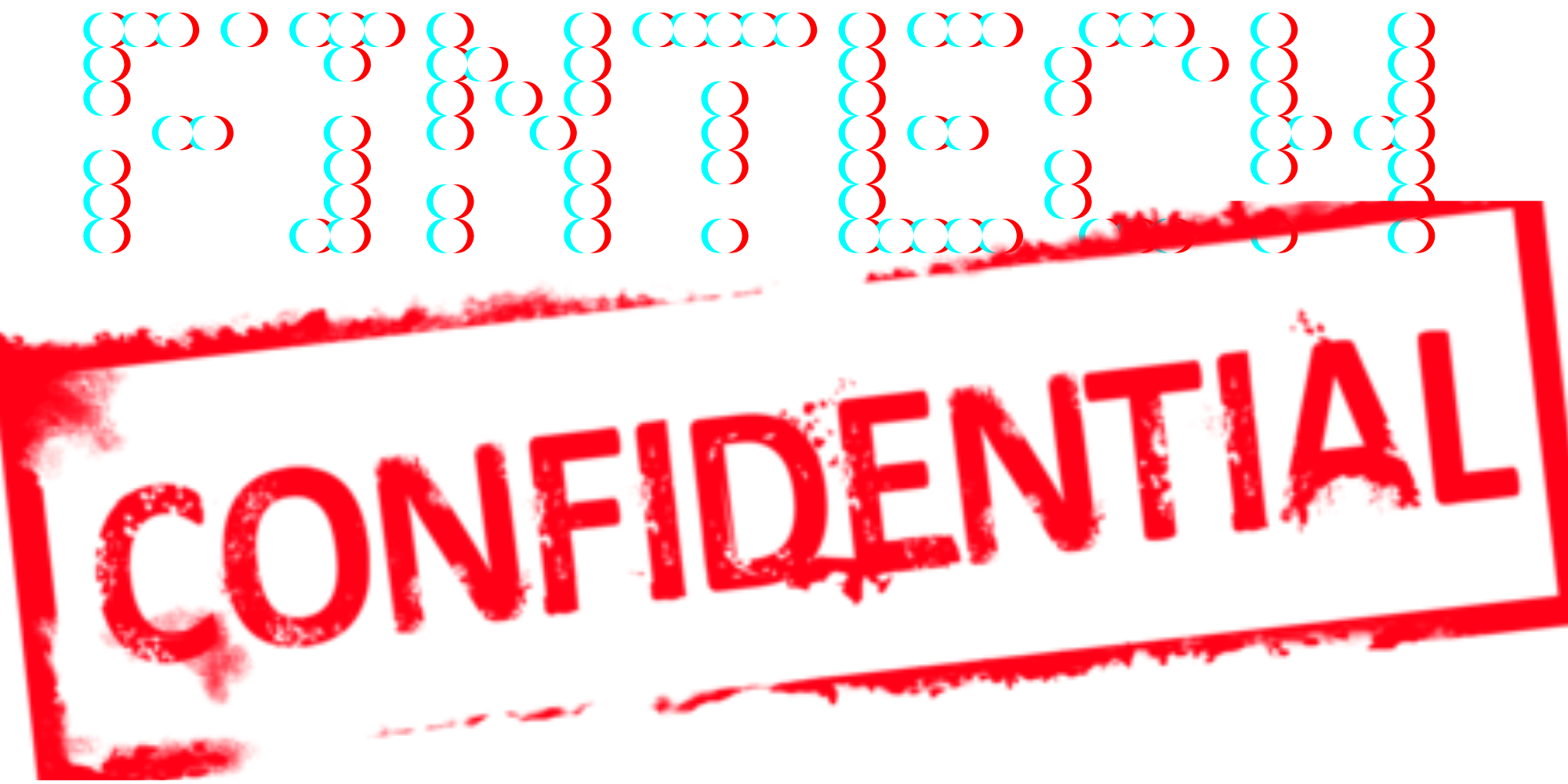Fintech Founders, Sohaib Zahid, Founder & CEO of Railz.ai
Fintech Confidential, Bringing you, the people tech and companies, that change how you pay and get paid.
Sohaib Zahid the founder of the FinTech Railz.ai explains how the idea was born, how as a founder he is driving the company forward while solving the big issue of business data access.
Railz is on a mission to build the largest financial data network as an underlying foundation for all financial technology companies and financial institutions of the future.
Railz enables businesses to connect to major financial and accounting service providers, like QuickBooks, Sage, FreshBooks, and more with a single API.
With Railz you can get the data you need to build the next alt-lender, neobank, forecasting software, or modern insurance brokerage all by accessing business financial data and Railz does the difficult process of normalizing the data so that you’re working with smart data.
Railz has a special offer for startups!
When you sign up for Railz’s pay-as-you-go plan you qualify for the six months FREE to access all connections, live integrations, and environments! You can follow the link in the description or let their team know you came through Fintech Confidential! https://bit.ly/railz6free
Transcript
And because accounting is a single source of truth. All this is data, but it's a messy data to make sense of. It was very hard and that it was a problem and companies couldn't really use it. So that's what got me to looking at the problem. And I'm a big fan of finding problems which have had hundreds and millions of people.
And this is something that affecting businesses all over the world. And that's how I got into building rails. Awesome. So before we dive into rails, cause I, I'm excited to learn about how your I'm going to use this phrase, whether it's right or wrong, but how it's democratizing the data in which all of these individual companies are using.
[: [:And I'm constantly thinking, how can I empower everybody in the team to do their job better, to push the boundary further, to take the message and the mission that you're on out to the world and tell everybody, actually scream to everybody that, Hey, what we're building is awesome. Oh, that is great.
[:How do you keep that alive at the pace at which rails is growing?
[:it's a very enabling culture. So when we talk about. You starting rails and you seen this problem was there like an aha moment when you're like, I see this problem, nobody else is solving it the way that I know that I can solve it. What was that driver? What was that like that pivot point or that, linchpin, that, came loose that said I gotta do this.
So I talked to multiple people inside Intuit. And whenI got to know that Intuit doesn't even use. Own accounting data to underwrite loans. That was like, what? And then I met my founder and he was actually using accounting data to underwrite loans as far as last company. And he was making the decisions on businesses in under ten minutes.
So that just sparked like, whoa, hold on. People who are sitting on this dataset are not doing it and you're doing it. So th they gotta be something that, you, which is a thousand times better. And he's also the top five mathematical mind set in Canada. So I'm keeping the confidence. I always tell people that I would not have built rail if it, and Derek on my side.
The way you described the culture, I can see how that dynamic between you two is really just permeated everything that you guys got going on, because I believe you've mentioned that it's a fully distributed team. So with everybody being distributed, how are you helping?
[: [:And how do you achieve a better division of labor?
responsibilities across
[Mic bleed]
And give power to everybody in their own domains so they can do work independently. So that's, I think the core, the heart of how we do things that division of labor is important.
And then giving autonomy is
[Mic bleed]
but. Nothing's perfect. We're not perfect. We struggle. We learn and we make, so you hit on the next thing that I wanted to understand, because everybody that I talked to is always comes to me with the question of, if you were to talk to a founder of a company, how let's find out what it is that.
The reasons why this is going to sound funny, but one of the reasons why they would never do it again. Now I take that in a slightly different approach. And I say, what are three big failures that make you question why you did it? And then we'll follow it up with some more positive stuff.
So starting a company is insanely immensely hard. It requires a hundred and thousand percent of effort and time, which means balancing personal life is hard. You can either give full time to to accompany or to your family. Do it's primarily because I had missed some of the moments with my family and my kid.
My kid is not two years old. I try to spend as much time as I can,
[Mic bleed]
sometimes she goes speaker in the morning and comes back and she's sleeping. So one of the things which made me that my doing this, the bigger picture, the bigger board, when I see. Business sending us, making my life easy. And it's something that keeps me.
[: [:thinking on the right track of doing it, it's still a hard problem. But nonetheless, we love to solve. The other one is we build a company and pandemic, which means that I didn't meet any of my team members at all. In fact, I met my Vancouver team for the first time yesterday and we met them on a team three weeks ago for the
[Mic bleed]
[:So that human emotion and human interaction wasn't there. But I think we did a good job in terms of keeping that going and alive and pulling the team together. And lastly, for such a short and young company, we've created quite a stir in the
[Mic bleed]
[:I'm blown away by all the progress you guys have made in this short period of time. One of the things that I want to have you explain a little bit better you guys call rails, I financial data network. What does that mean? And why is it so important?
We're building a single universal source of truth for small businesses. The math have the idea is that small business data is housed and multiple silos and repositories, whether it's payroll, e-commerce tax accounting, banking, HR payroll. The problem of it, all the data is not having access to it. Access is easy.
The problem is how do you bring it all together? No harmonized way to make sense of it. How do you fill in the blanks and become the universal source? The library that everybody goes to, we're looking at building the library of Congress and it comes to us
as we continue to grow. The idea is that. Anything that you want to grab on a small business, you go through rails. You don't go to any of those above mentioned silence, other positive things that I mentioned. So the mission is not only to it, but also to make sense and normalize the data across
[Mic bleed]
[:So I think companies like plaid and Yodlee P of the
[Mic bleed]
[:So rather than thinking about open banking, we should really be thinking about open finance or even open data protocols across all different silos that you have access to. And really the idea and the way we're thinking is the owners of the data should be part of the transaction. And that ownership resides with the small
[Mic bleed]
[:The banks use this data to create better products. Companies like rails on making sense of that data. Of course there's transactional value to it, but then the small business, their only upside is that they of course get a better product, but how do we democratize this data across the board as is our mission?
So that's how we think about it in the bigger, broader sense.
[:I promise.
[:Normalization is cohesiveness of pulling all this data together and filling the blanks. If there is, let's say accumulated depreciation, we want to understand if it's a asset, if it's a current or non-current asset, if it's tied back to the balance sheet, we want to understand the whole HR headcount. What is the expense of that we want?
The revenue or expenses or setting and how do they tie into the bigger picture that's understanding and indexing on granular level of transactional data to understand the complete picture of business is what's normalization to
[Mic bleed]
[:Yeah. So we had a platform and other SAS companies built on top of. They're able to do today with us from the lens of a small business and expedite decisions on different
[Mic bleed]
[:It's also on the cash management side. How do you understand where you're spending and expenses? And then it's around
[Mic bleed]
[:So you can really start to understand because entrepreneurs typically depend on. Accountants and bookkeepers for that, but this is not giving the driver's seat
[Mic bleed]
[:And. And this is a receiving hundreds and thousands of checks. They don't know how to reconcile them really fast. So rails gives you the power to do that right way, and they're helping you. Different lock
[Mic bleed]
[: [:How are they leveraging rails in order to be more effective.
[:This is not over official partner. We work and plugging into the same public API as everybody else does. Put some magic on this data to make it more understandable across support. Then our accounting providers are trying to unify their legacy systems into cloud and migrate that data over and normalize it without messing it up.
So they're using. And then we're working at core systems to pull it out of core systems, normalize that, and then sync it with the accounting systems and the reconciliation side as well. So we are working on the big problems as well as helping them create applications for small businesses.
[: [:Don't be evil, right? So we follow all the banking, security protocols across the board in terms of making sure that transmission storage is secure and abiding laws that we have in place today. As well as the protocols that we have in place
[Mic bleed]
[:[Mic bleed]
[: [:My personal opinion is it makes things more confusing and complicated for the rest of us who are trying to do things with the data. Sohaib, I want to understand what are some other things that we want to make sure that the listeners understand about rails?
That maybe I haven't brought up, what are some things that maybe I've left out?
[:[Mic bleed]
[:It's product companies are point to understand the businesses who are trying to work with them in terms of their product it's marketing research companies are trying to understand small business sales. It's just simple research companies who are trying to understand business on a cohort and doing research.
So the application and. The entities and industries that we are going to touch is beyond FinTech. And that's the poverty of the data. That's the part of rails that we're building, but we're perceived only in the realm of FinTech. But other product companies and research companies can definitely use all their,
[:[Mic bleed]
how are they going to be, let me rephrase this differently. How can they best use rails in order to make those decisions?
And I know it's tying into all these different things, but like how are they going to know? Or how do you suggest that they use the data that they're able to get access to through rails?
[:[Mic bleed]
[:[Mic bleed]
you're selling tenters too, you want to know if they're buying eight from you or other third parties. And how do you fold that under the umbrella?
So you also have access to because your machine and someone else is making a repeatable.
[Mic bleed]
[:If you are a Thomson Reuter or any other big research company, you want to understand. All small business in a specific zip code based on, how cool would affect them across the board, why are more bankruptcies happening? Why more industries, more businesses. So all of those types of freelancers can be understood with the data across the board, the field building.
So these are some of the examples of the data can be used. Really, what we're trying to do is the data that's available in public markets. We're making sure that people can have access to in the private markets and markets are much bigger than the public
[Mic bleed]
[:Whether it be, I was looking at it from the marketing perspectives that you mentioned earlier and it's I can't. Just continuing to go you can use it here and you can use it like this and this data if we connected it. And so my brain just starts to look at rails as being that, that hub or that connector between two different places in a way that they can use the data that makes sense to them.
Is that about the best way to look at. Yeah, absolutely. You're not the only one. I think when you give tools and poverty to builders and
[Mic bleed]
[:A very developer focused product. We cater to people who are building it. We cater to people who are right at the front line, because we believe that when you give access to information, knowledge is father and then they have the power in their hands. They will build things that supplies everybody.
[: [:Sohaib I really appreciate you taking time out of your busy schedule. As you mentioned before, being a founder, you're always on the go. Thank you for taking the time out to share your insights personally, professionally as well, even from a FinTech perspective, we really appreciate that before we go.
Is there anything else that you want to say to the audience?
I think at the end of the day it's the problem that as a user are using it that matters and we're obsessed with our user base in the problem at hand and looking forward to solving it for millions and millions of businesses out
[Mic bleed]
[: [:Again, Sohaib thank you so much for your time. And I look forward to seeing Railz grow here over the next many, many years. So thank you again.
[:




